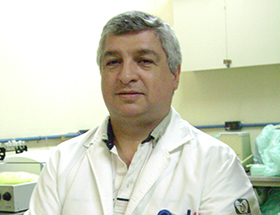
Tuberculosis is a chronic disease caused mainly by Mycobacterium tuberculosis. The emergence of antibiotic-resistant strains of this species underscores the need for novel effective drugs against resistant mycobacteria as first-line antituberculosis medications. Crude aqueous (obtained by decoction, in accordance with the traditional mode of preparation), methanol, acetone, and hexane extracts from aerial parts of Artemisia ludoviciana Nutt., Chenopodium ambrosioides L., Marrubium vulgare L., Mentha spicata L., and Flourensia cernua DC were assessed for their ability to either inhibit the growth of or kill M. tuberculosis strains H37Rv and CIBIN:UMF:15:99, the former being sensitive to, and the latter resistant to, streptomycin, isoniazide, rifampin, ethambutol, and pyrazinamide. These five plant species are used in Mexico to treat respiratory disorders. Flourensia cernua was the uniquely active plant among those evaluated. Its hexane and acetone extracts not only inhibited the growth of but killed M. tuberculosis. The hexane extract showed a minimal inhibitory concentration (MIC) of 50 and 25 microg/mL against sensitive and resistant strains, respectively; the acetone extract was active against only CIBIN:UMF:15:99 (MIC = 100 microg/mL). The hexane extract from F. cernua leaves could be an important source of bactericidal compounds against multidrug-resistant M. tuberculosis.





.jpg)




